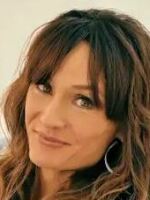ANDREA SEABROOK, host:
NPR's Rachel Martin reported this week on the role of religion in the coming election and the struggles in both parties this fall to take their message into the pews. Here's a look inside her Reporter's Notebook.
RACHEL MARTIN: Seems like God is everywhere on the campaign trail. Candidates visiting churches, filming television ads from church pews, and quoting scripture at every opportunity. Here's Bob Casey, the Democrat running for Senate in Pennsylvania.
Mr. BOB CASEY (Democratic Senatorial Candidate, Pennsylvania): My understanding of the common good also comes from my faith, faith in God that all things will ultimately work to his greater good.
MARTIN: But what I found after talking with voters is that there is a real danger here. If you do this too often or too loudly, people - especially people of faith - start to question your motives. I heard this clearly at Potter's House, an evangelical megachurch in Columbus, Ohio. After the service was finished and most everyone had gone home, I sat down on a bench in the lobby with one of the church employees, Carlos Roberson, who stayed behind to lock up.
Mr. CARLOS ROBESON (Employee, Potter's House Church): Don't come to me as a politician, and when you're up on the podium and you talk about how much you pray and this and that, trying to make me feel as if you have a relationship with the Lord so that you can win the votes of most people who have a spiritual relationship with God, don't - don't come at me with that.
MARTIN: And that seems to be the real challenge this fall. If everyone, especially the Democrats, has figured out that you can't win elections in America unless you connect with people of faith, how do you do this without coming off as phony? So I asked a professional. Mara Vanderslice is the President of Common Good Strategies, a small consulting firm that's helping Democrats tap into their religious side.
Ms. MARA VANDERSLICE (President, Common Good Strategies): I think that's people's biggest fear. Because I think immediately most people are going to maybe have cynical thoughts as to where is all this coming from. And that's why we have really pushed that this has to be about authentic engagement.
MARTIN: She says that means only working with candidates who've demonstrated a real relationship with God and a deep religious faith. The trick is achieving that balance between talking enough about faith and talking too much.
My dad is a devout Presbyterian and a Sunday school teacher. So I brought the whole issue up with him. His response: Matthew Chapter 6 Verse 1. Beware of practicing your righteousness before other people in order to be seen by them. For then you will have no reward from your father in heaven.
SEABROOK: That's NPR's Rachel Martin. You can hear her stories from this past week on religion and faith in politics on our Web site, NPR.org. Transcript provided by NPR, Copyright NPR.






